The Ketogenic Diet without a Gallbladder
Following a ketogenic diet without a gallbladder is controversial but by applying the proper strategies can be done effectively. I have seen many people who have lost their gallbladder, be able to transition nicely into a ketogenic diet and it has greatly enhanced their quality of life by helping them have more energy, weight loss, lowered levels of inflammation and improved brain function.
Since the 1920s, ketogenic diets have been used as a therapeutic method to treat obesity, epilepsy, diabetes, neurological disorders, cancer and many other pathological diseases (1). This very low carbohydrate diet that combines moderate protein consumption with high amounts of quality fats puts the body into a state of fat or ketone adaptation.
Following a ketogenic diet without a gallbladder can pose complications because of the body’s inability to adequately secrete bile to break down fatty meals. Fortunately, these 7 strategies will answer your concerns for maintaining ketosis without a gallbladder.
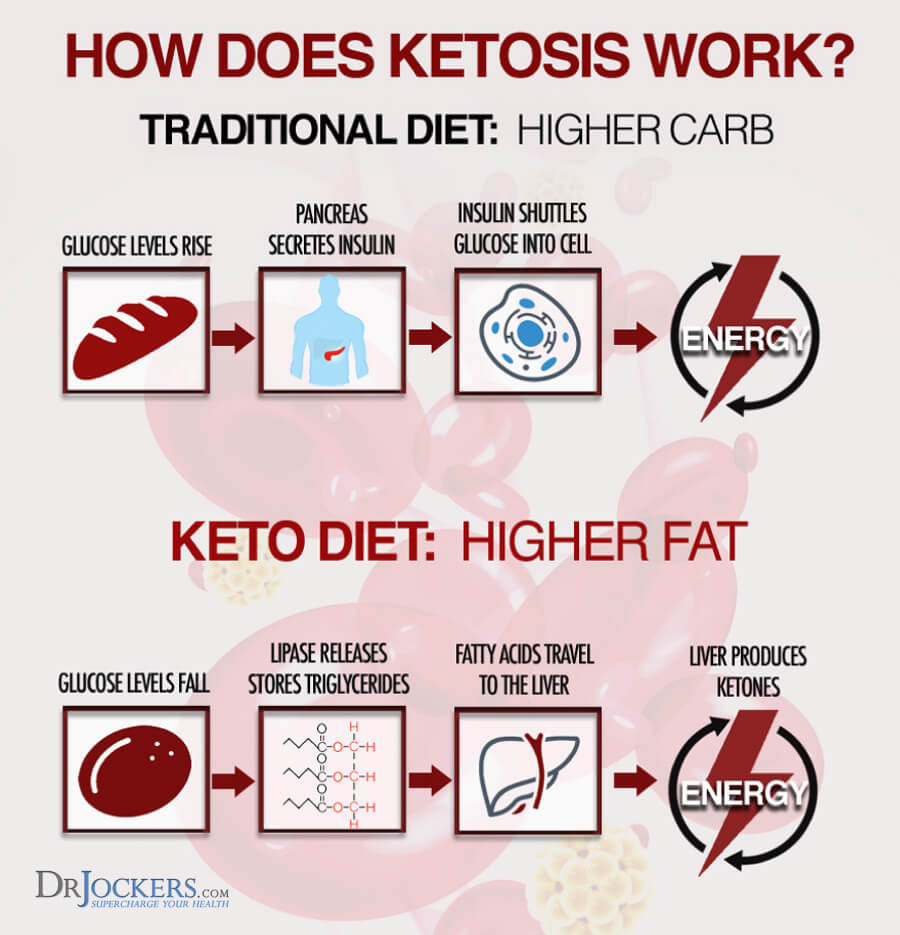
What Is Ketosis?
When net carbohydrate consumption remains less than 50 g/day (in some cases under 30g/day), insulin concentration reduces and the body begins using stored fat for energy via lipogenesis (1). Following 3 to 4 days of this dietary carbohydrate restriction, the central nervous system (CNS) has an inadequate supply of glucose and must seek other fuel.
The alternate energy source the CNS seeks along with tissues and organs is ketone bodies. These ketone bodies are produced at high concentrations in the liver during the metabolic state of ketogenesis which is also attainable during periods of prolonged fasting. The 3 major ketone bodies include acetate, acetoacetate and beta-hydroxybutyrate.
Ketosis results in numerous health promoting benefits including: (1)
- Decreased fatty acid production
- Increased metabolism of fats and lipids
- Higher metabolic rate to use ketone bodies
- Improved mitochondrial function
- Modified satiety hormones including ghrelin and leptin
- Regulates blood lipid levels including triglycerides and cholesterol
- Reduced insulin signaling
- Improved glycemic control
- Reduced whole body inflammatory levels
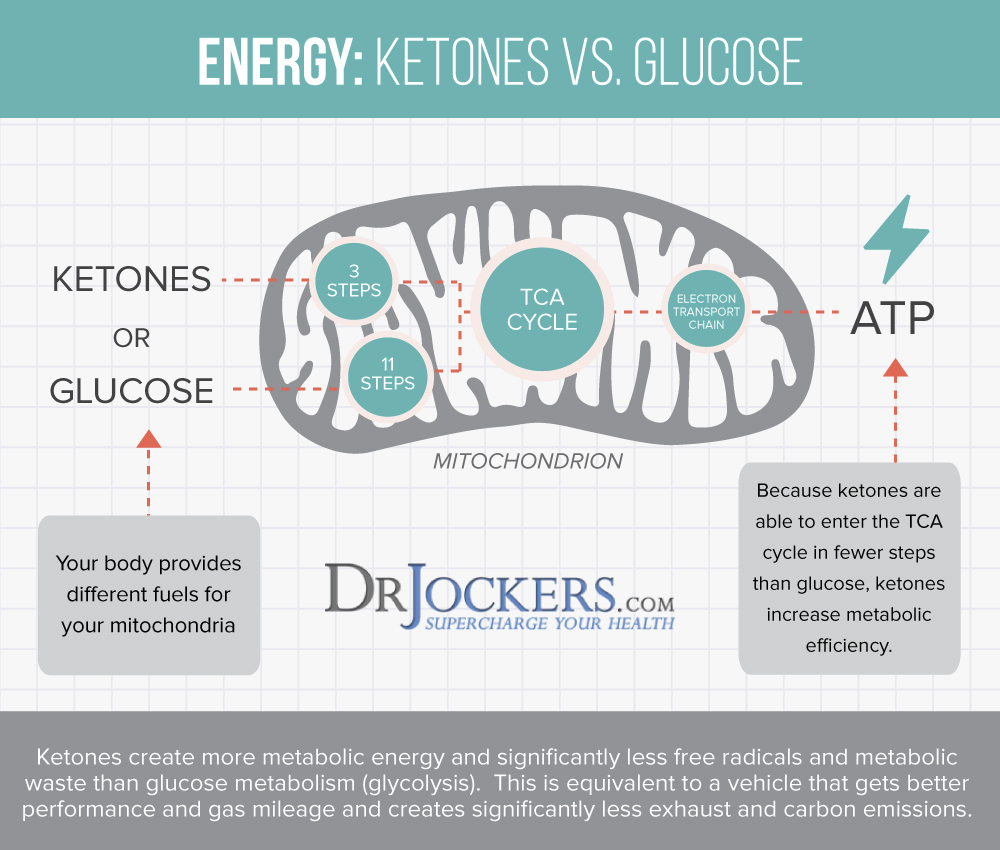
Is a Ketogenic Diet Right for You?
When nutritional ketosis is properly managed, it is an excellent way to improve your quality of life.
Reverse Neurological Dysfunction: Many individuals can benefit from ketosis to improve insulin sensitivity, combat chronic inflammation, reduce the risk of developing chronic disease, prevent muscle fatigue and encourage healthy weight. Ketosis is shown to favor the reversal of neurological decline in patients suffering from neurological disorders affecting sleep habits, causing headaches and those showing symptoms of Alzheimer and Parkinson’s disease as well as multiple sclerosis and autism (7).
Combat Cancer: A diet with normal or high levels of glucose fuels the development of cancer cells. Diminishing your carbohydrate intake will deprive cancer cells of their primary energy source. The state of ketosis has been shown to weaken cancer cells and make them more susceptible to various cancer treatments and the bodies immune attack. (2).
Contraindication: Due to associated health risks, it may not be appropriate for the following people to enter and maintain a state of ketosis in the body:
- High performance athletes
- Children and teenagers
- Women who are pregnant, nursing or experience irregular menstrual cycles
- Some individuals with adrenal fatigue or poor thyroid function
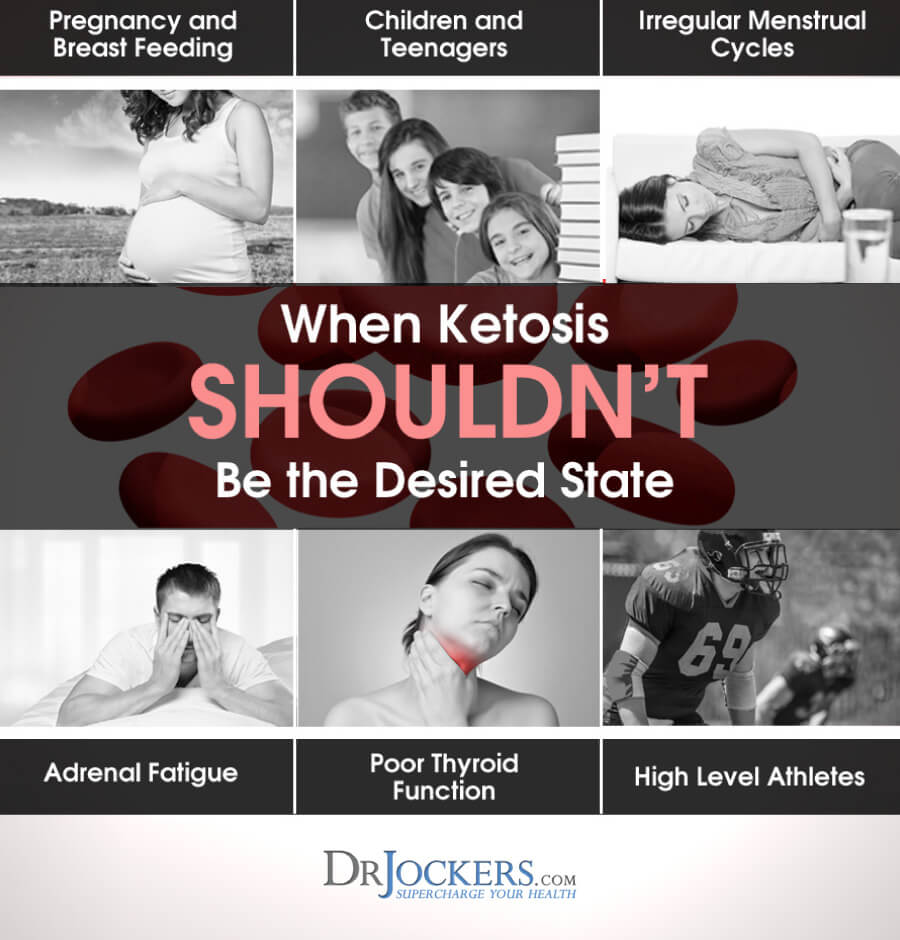
Gallbladder and Liver Function as One Unit
If you are still wondering if ketosis is possible, safe and healthy for someone without a gallbladder, the answer is yes. The gallbladder is an organ that aids in the digestion of fatty foods by storing up bile reserves. Bile is generated in the liver and carried to the gallbladder via the bile ducts. The gallbladder will contract to force bile out when it receives ques that fats have been eaten.
Bile serves four primary functions in digestion:
- Breakdown fatty acids
- Stabilize blood sugar
- Inhibit bacterial overgrowth
- Remove toxic waste and cholesterol from the liver for excretion from the body.
If your gallbladder has been removed, the liver still produces bile. However, because bile cannot be stored for efficient fat digestion, it slowly seeps into the intestines. This results in its inadequacy to properly digest a meal with a high amount of fat in it.
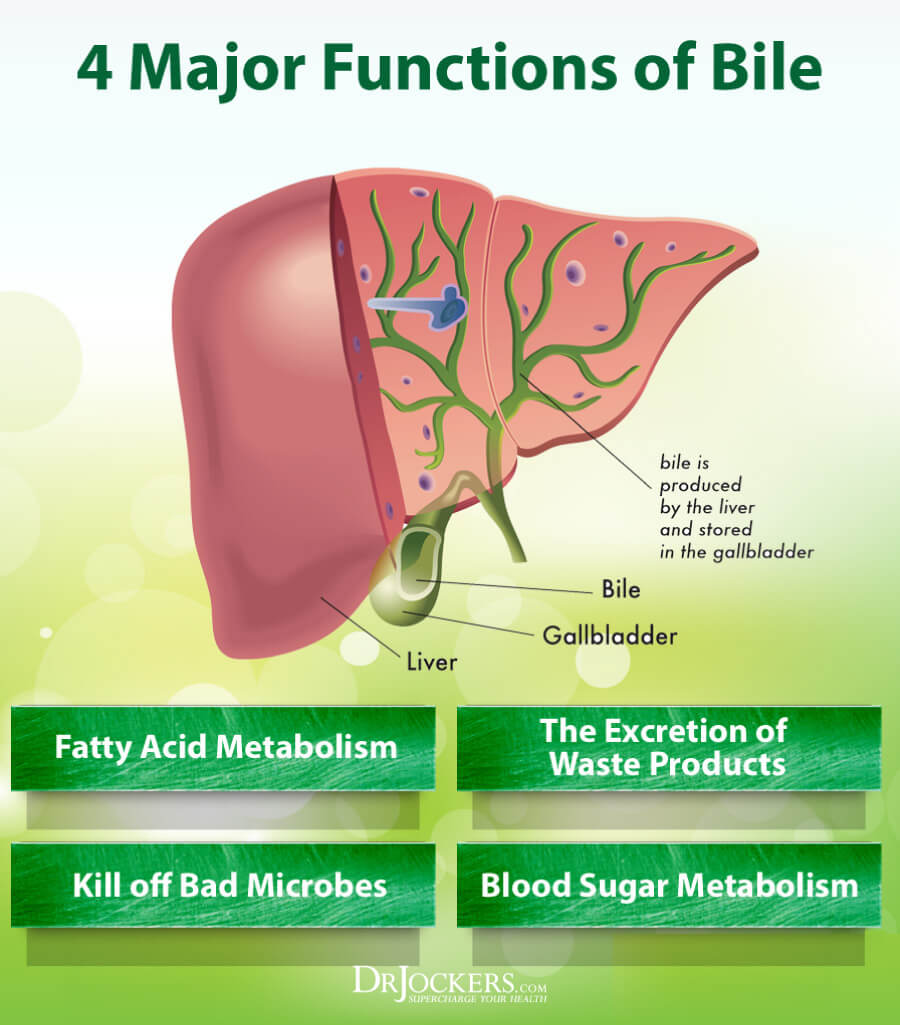
Gallbladder and Liver Issues:
Addressing the health of both the liver and gallbladder is vital to improving health. When the bile ducts of the liver harden, they can form a crystallized structure called gallstones that obstruct bile flow and secretion. Gallstones are created from the combination of excessive cholesterol and/or bilirubin.
The liver is responsible for the production of bilirubin. Therefore, the presence of gallstones and gallbladder dysfunction indicates an underlying liver problem. (8)
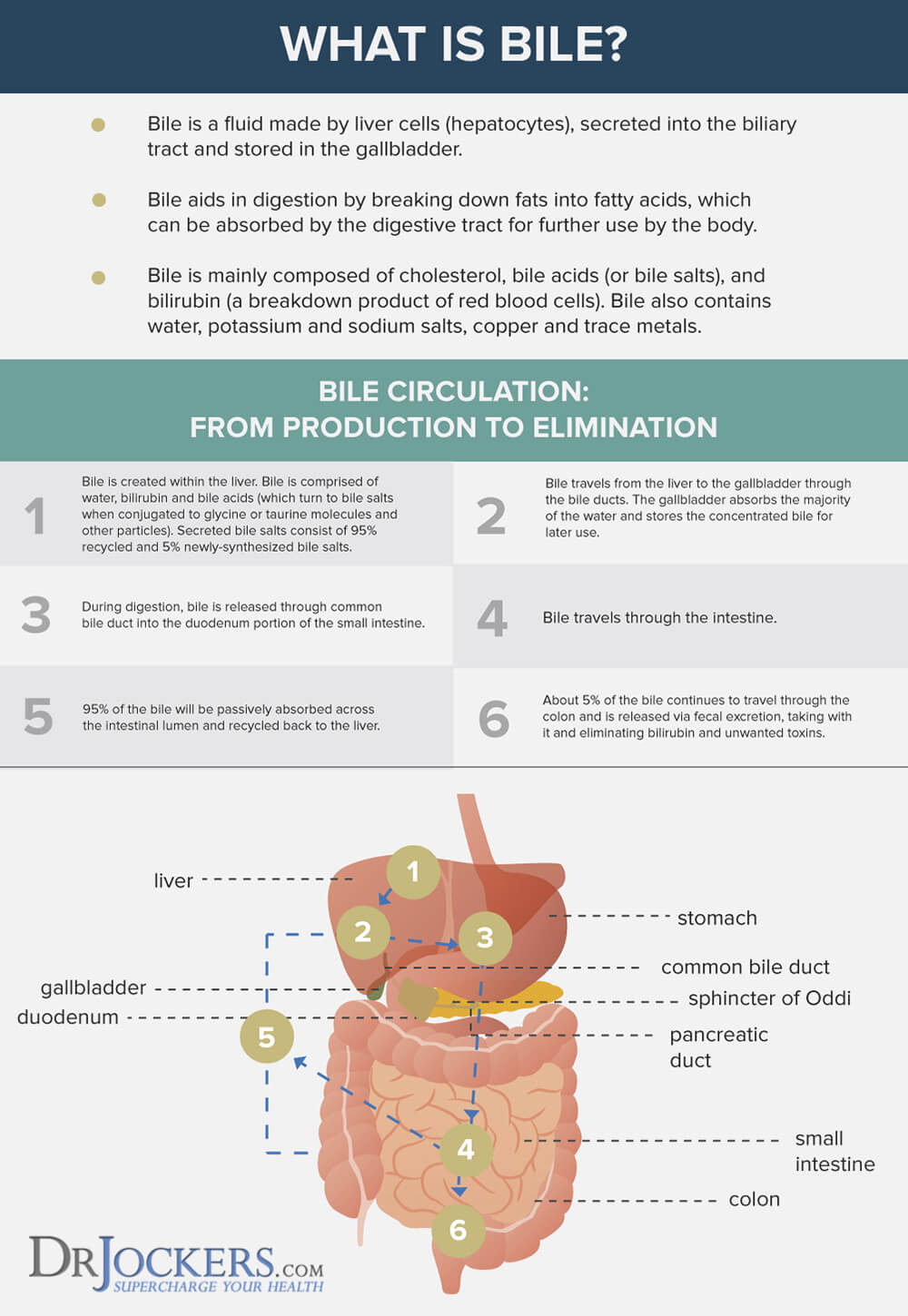
Common Symptoms:
If fats are not properly digested, someone that has had their gallbladder removed or has a gallbladder disease will experience malabsorption of valuable nutrients. Essential fatty acids like omega-3 and omega-6 fats as well as vitamins that require fat for absorption (vitamins A, D, E, and K) can become deficient. This nutrient loss causes systemic issues including dry skin, thinning hair and even autoimmune symptoms.
Unfortunately, symptoms of gallbladder and liver issues do not disappear with the removal of the gallbladder. Individuals can suffer from digestive distress including nausea and vomiting, abdominal pain, gas and bloating, as well as symptoms distant from the abdominal region such as itchy skin, pain between the shoulder blades, headaches and migraines, fibromyalgia and hormonal imbalances. (14)
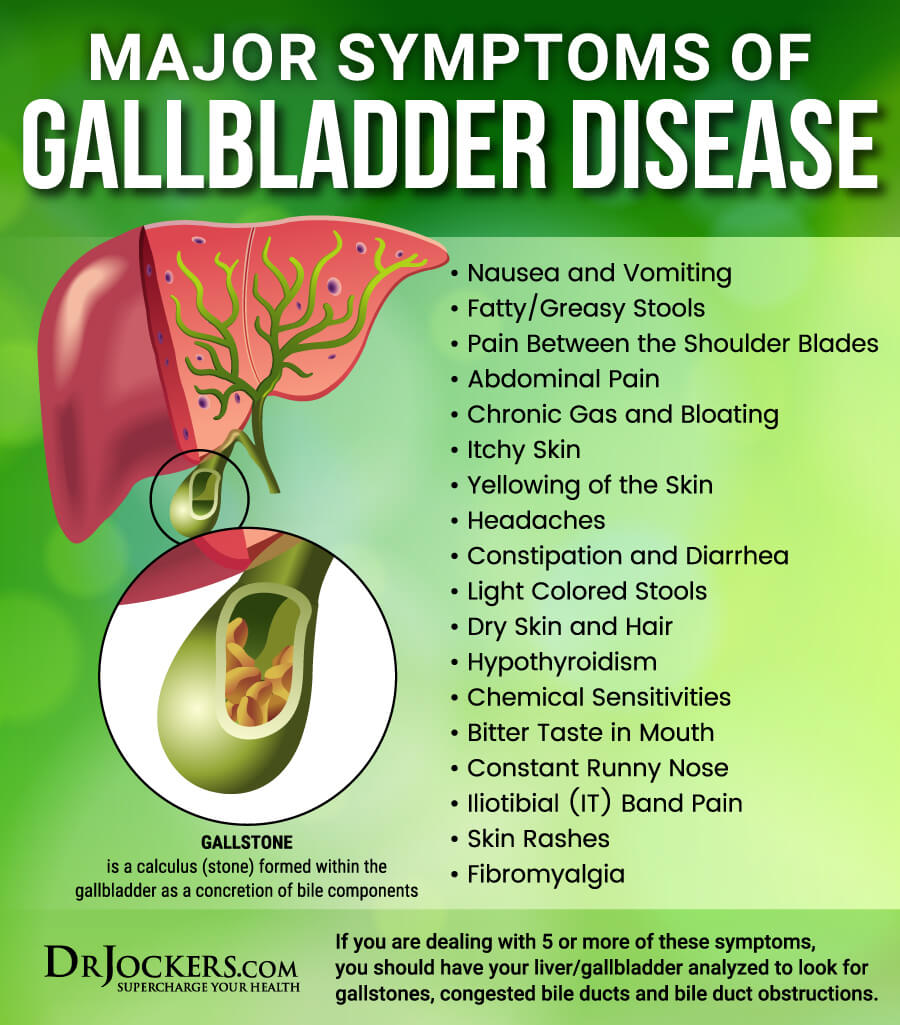
Following a Ketogenic Diet
A ketogenic diet consists of about 75% healthy fats, 20% proteins and 5% carbohydrates. In general, you will want to consume about 20 to 35 grams of protein at each meal depending on your body size and intensity of exercise. Individuals with a sedentary lifestyle only require 10-15% of calories from protein whereas someone with high physical demands requires 20-25% calories from protein.
Although a ketogenic diet will have your body producing ketones within a few days, training your body to stay in a state of ketosis takes about 2 or 3 weeks (6). The following list provides staple foods which promote ketosis.
Fats: Coconut oil, full fat coconut milk, raw nuts and seeds especially pumpkin seeds, chia and flaxseeds, olive oil, avocados, MCT oil, pastured butter, hemp powder, and organ meats such as grass-fed beef and pasture-raised chicken liver.
Proteins: Grass-fed beef, wild game, organic free range poultry, organic and grass-fed raw dairy and fermented dairy.
Carbohydrates: Brussel sprouts, kale, broccoli, asparagus, collard greens, spinach, celery, cauliflower, cabbage, lemons, limes and other non-starchy veggies.
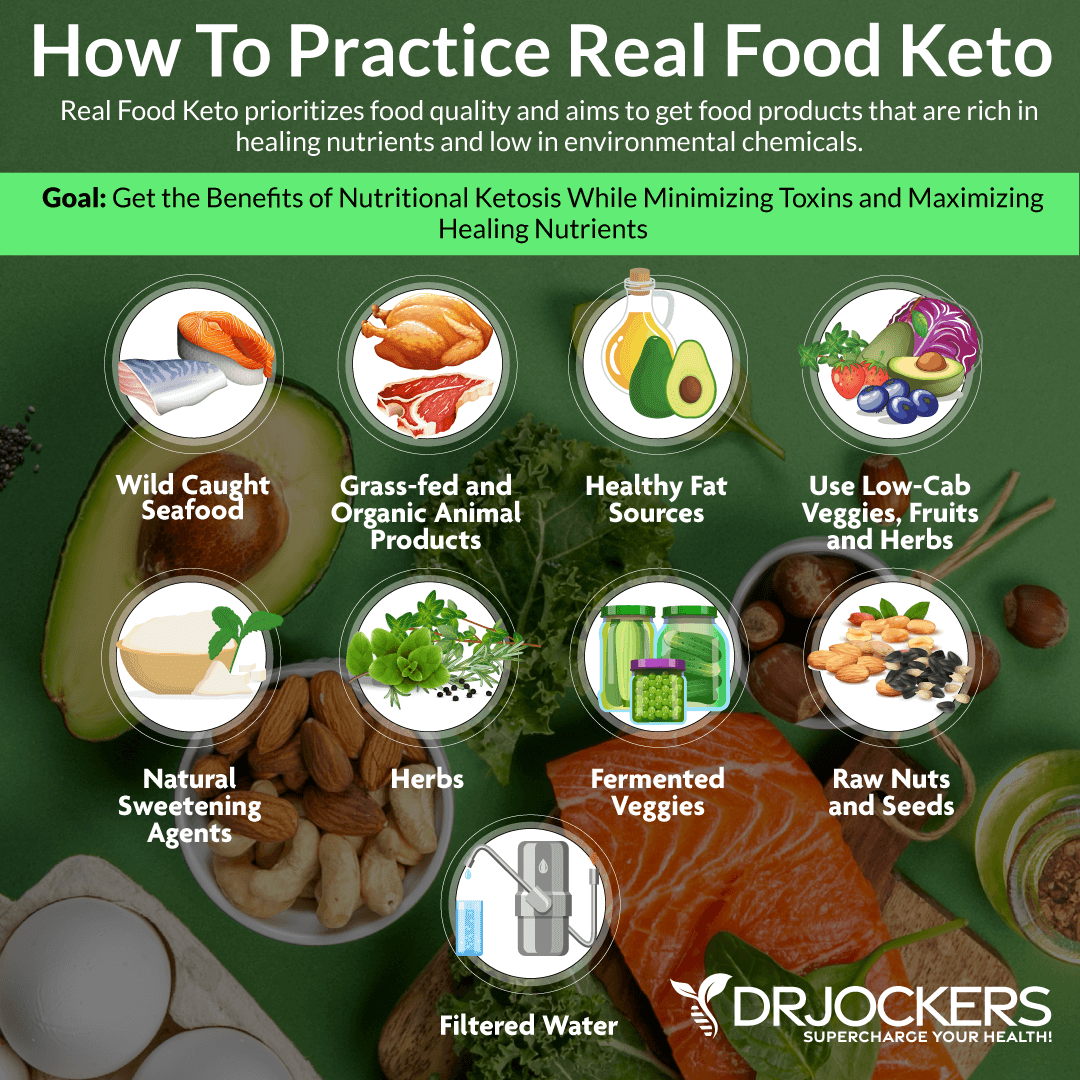
7 Key Strategies:
If you have had liver or gallbladder problems in the past or no longer have your gallbladder then be sure to follow the strategies below. Many people without a gallbladder are able to thrive when they successfully apply these tips, so give them a shot and see how you respond.
If you feel extremely tired and irritable for more than a few days than try adding back more healthy carbs with your evening meals in a process called carb backloading. People with liver or gallbladder issues typically do very well with beets, carrots, green apples, squash and berries. These would be better sources of carbohydrates than grains and sugar sweeteners.
1.) Bile Healthy Foods:
Ginger is a carminative herb and one of the best foods for producing stomach acid and bile (15). Adding apple cider vinegar to your meals and beverages can help thin bile for efficient flow from the liver. Artichokes stimulate bile production in the liver and increase its flow into the intestines (16).
Add plenty of sour foods into your diet like lemons and limes to improve your tolerance of fats. These citrus fruits cleanse the liver and thin bile for improved digestion and nutrient absorption. Fermented vegetables and drinks such as a low-carb coconut water kefir are excellent for improving digestive juice production.
Fibrous vegetables and fermented foods and beverages are excellent to stimulate a healthy digestive system and prevent the overgrowth of intestinal bacteria that can lead to digestive disturbances (18). Celery and cucumbers are great low carb foods that naturally contain sodium, vitamins B and C and trace minerals for liver health.
Celery as well as asparagus are good foods for detoxifying the liver and improving bile flow. Add radishes to your meals to support the metabolism of fats from increased bile production (17).
2.) Ginger and Dandelion Tea:
Both ginger and dandelion are considered bitter herbs that increase bile production and boost bile flow for a healthy liver. These herbs should be consumed daily for anyone who wants to follow a ketogenic diet without a gallbladder.
Ginger has well known carminative properties that can help relieve symptoms of indigestion and prevent nausea and vomiting. Ginger stimulates the secretion of gastric juices like hydrochloric (HCL) acid and bile. It has also been shown to inhibit inflammation of liver tissue aiding in the removal of toxins (10). Here is my favorite ginger tea and a great green tea and ginger tea combination here.
Traditional Medicinals offers an Organic Dandelion Leaf and Root Tea that is excellent in supporting healthy digestion and enhancing detoxification. Dandelion leaf or greens is also a prebiotic food source that supports a healthy gut microflora and keeps pathogenic bacteria at bay (5).
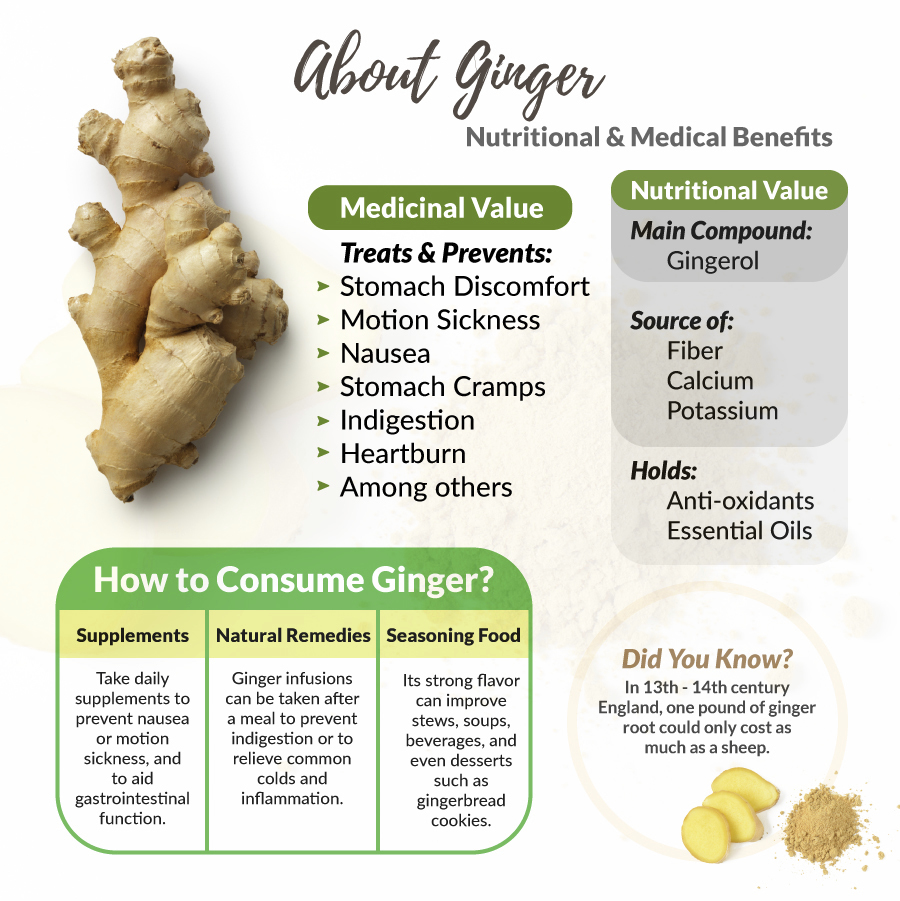
3.) Good Hydration:
Without plenty of water available to the liver, bile production decreases and the body creates a thick, sluggish bile flow. Aim to drink 32 ounces of purified water within the first hour of waking up and between 32 and 48 ounces of water by noon.
Drinking plenty of purified water is essential to improving gut motility and preventing constipation while maintaining ketosis. It is also critical for healthy liver function and bile release. This is important for everyone but especially those who want to follow a ketogenic diet without a gallbladder.
4.) Support Stomach Acid Levels:
Optimal stomach acid levels are necessary for stimulating bile secretion from the liver and destroying pathogenic microbes that can overpopulate the intestines causing inflammation and indigestion. The combination of optimal stomach acid and bile flow is critical to the detoxification process of the liver and digestive tract so that you feel healthy and energized while maintaining ketosis without a gallbladder.
Producing adequate stomach acid will support your body’s ability to metabolize fats, absorb essential nutrients, and prevent feelings of discomfort and digestive problems. This is very important if you want to follow a ketogenic diet without a gallbladder
Support stomach acid levels by avoiding water intake within a 30 minute window before and after meals and relaxing to enjoy your meal. Higher levels of stress block the secretion of stomach acid, so it is very important to relax the body before meals. You may also consider a hydrochloric acid supplement in the form of betaine HCL tablets taken during or immediately following a meal.
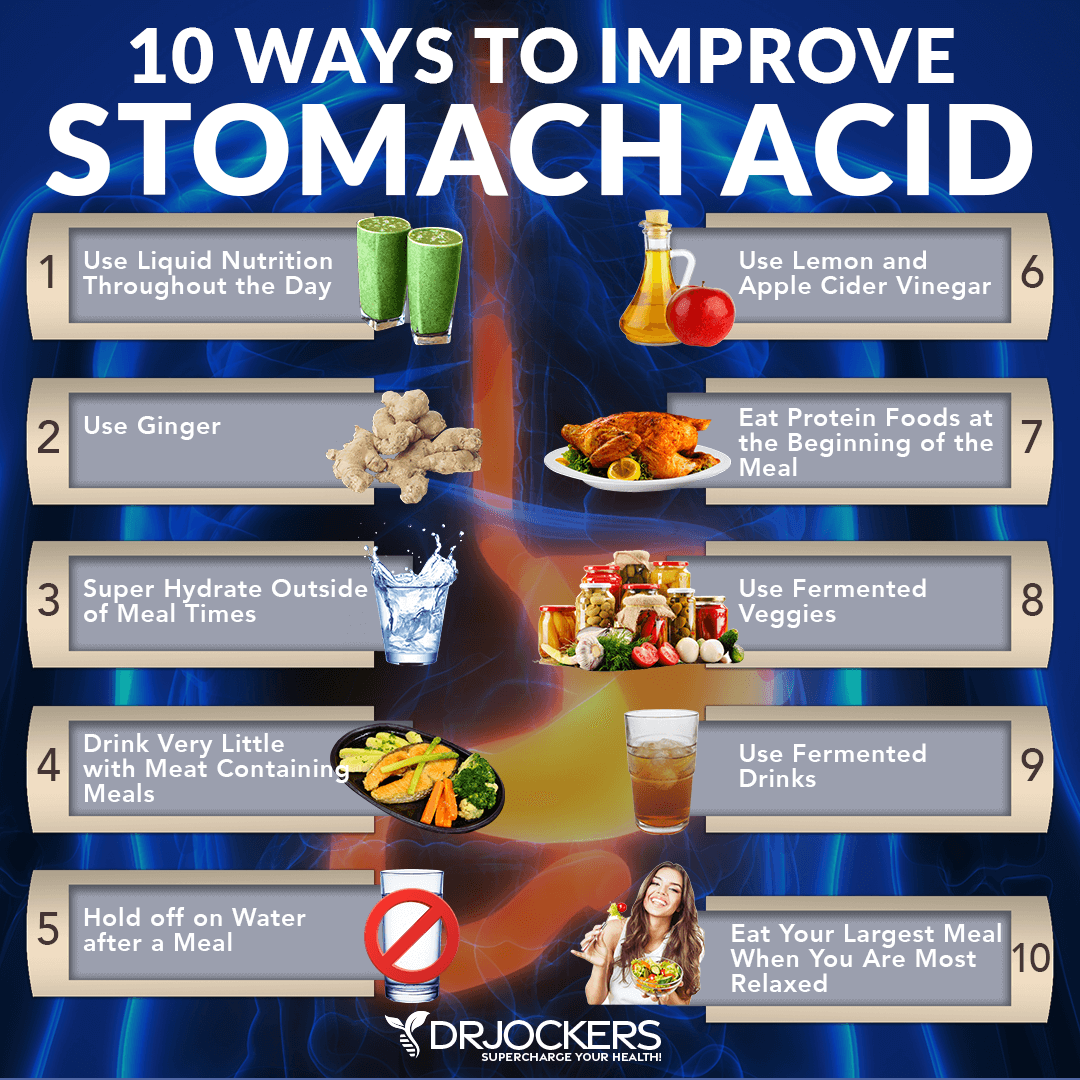
5.) Use Digestive Enzymes and Ox Bile:
Supplementing your diet with digestive enzymes and ox bile can significantly support fat metabolism without a gallbladder.
Digestive Enzymes: Digestive enzymes contain natural bile salts, betaine HCL, herbs and a complex of enzymes that support the function of other digestive organs like the pancreas. Finding a good quality digestive enzyme is an effective way to produce adequate stomach acid, inhibit inflammation of the intestines and aid in fat metabolism and the assimilation of fat soluble vitamins (9).
Ox Bile: Ox bile supports the body in breaking down fats without the presence of bile. Some digestive enzymes contain ox bile but it is recommended to be supplemented separately.
Ox bile serves similar purposes in sanitizing or killing off microbes and helping to assimilate fats for absorption. Ox bile can help relieve your symptoms of indigestion and feelings of an upset stomach that you may otherwise experience consuming a high fat diet without healthy bile concentrations. (13) If you want extra bile support while following a ketogenic diet without a gallbladder, than I recommend using Super Digest HCL with your meals.

6.) Avoid High Amounts of Long-Chain Fats:
Long chain fatty acids need bile in order to be metabolized into triglycerides. Small and medium chain fatty acids do not require bile and are easier on the liver. In addition, long-chain fats take a longer period of time to break down and require significantly more energy for digestion (3).
We find long-chain fatty acids in avocados, nuts and seeds, olives and olive oil and meats. We find small and medium chain fatty acids in grass-fed butter and coconut fats.
It is especially critical for individuals without a gallbladder to eat small meals. Inadequate gastric juices and bile secretion will cause digestive distress from the inability to break down long-chain fats. Instead, consume 3 or 4 small meals throughout the day. Substitute liquid nutrition that is easy on the digestive tract with shakes and smoothies to support liver function.
If you want to follow a ketogenic diet without a gallbladder then I would also highly advise taking 2 caps of Bile Flow Support here at the end of each meal in which you have long-chain fats to help improve bile flow and fat emulsification.
7.) Use MCT Oils:
Medium chain triglyceride (MCT) oils are rapidly metabolized into ketone bodies for efficient energy use. Consuming MCT oil reduces your energy dependence on fats to 60-70% making MCTs easily absorbable by individuals without a gallbladder and those with slow liver function (3).
You may be surprised to know that coconut oil is actually made up of 35% long chain triglycerides, only 15% medium chain triglycerides and 50% lauric acid which is utilized as a long chain fatty acid. (4)
Adding MCT oil to your diet is one of the best ways to increase the medium chain triglycerides that favor maintaining ketosis without a gallbladder. Unlike most fatty acids, MCTs do not rely on the production of bile to be metabolized and begin breaking down immediately from contact with enzymes found in saliva.
MCTs have been shown to effectively synthesize ketones and cross the blood-brain barrier for healthy brain function (5). I recommend using a specific C8 only MCT oil such as Keto Brain, which is the easiest on the system and increases ketones the fastest.
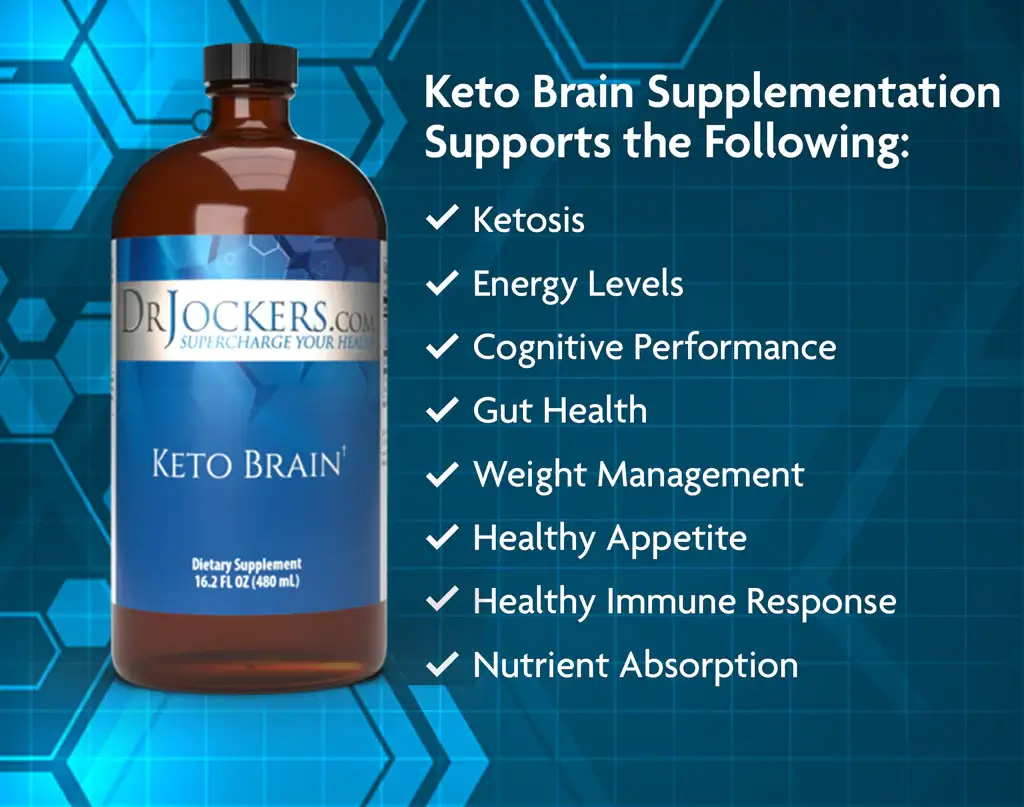 Conclusion on Ketogenic Diet Without a Gallbladder:
Conclusion on Ketogenic Diet Without a Gallbladder:
Greater than 700 toxins are carried by any individual in organs including the digestive tract and liver (11). It is especially critical for individuals without a gallbladder to practice lifestyle habits that support liver function. Preserve nutrition by consuming organic foods and drinking purified water to reduce the toxic burden on your liver and body.
Incorporating a lifestyle of habits that supports your body’s need for detoxification rather than inhibits it will leave you feeling great on the ketogenic diet without a gallbladder.
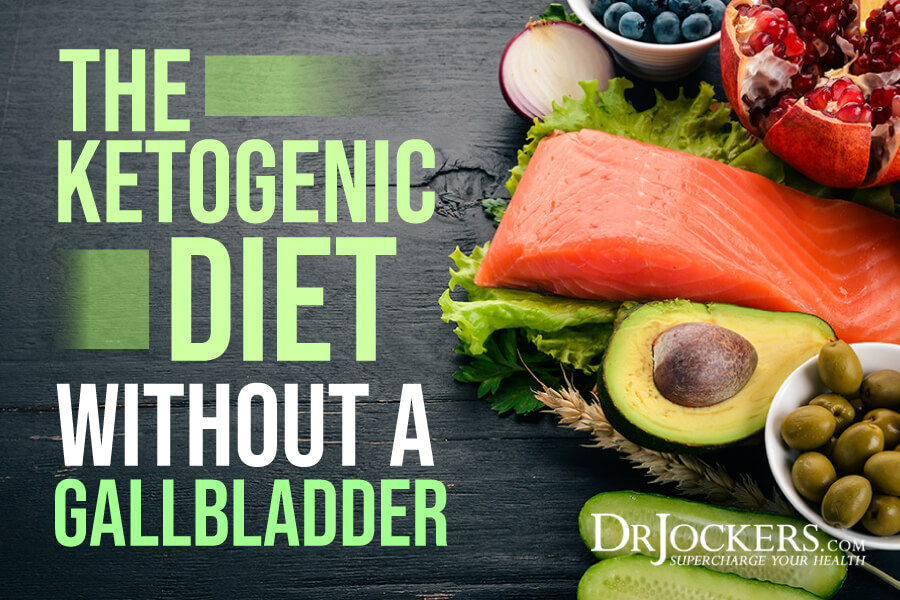
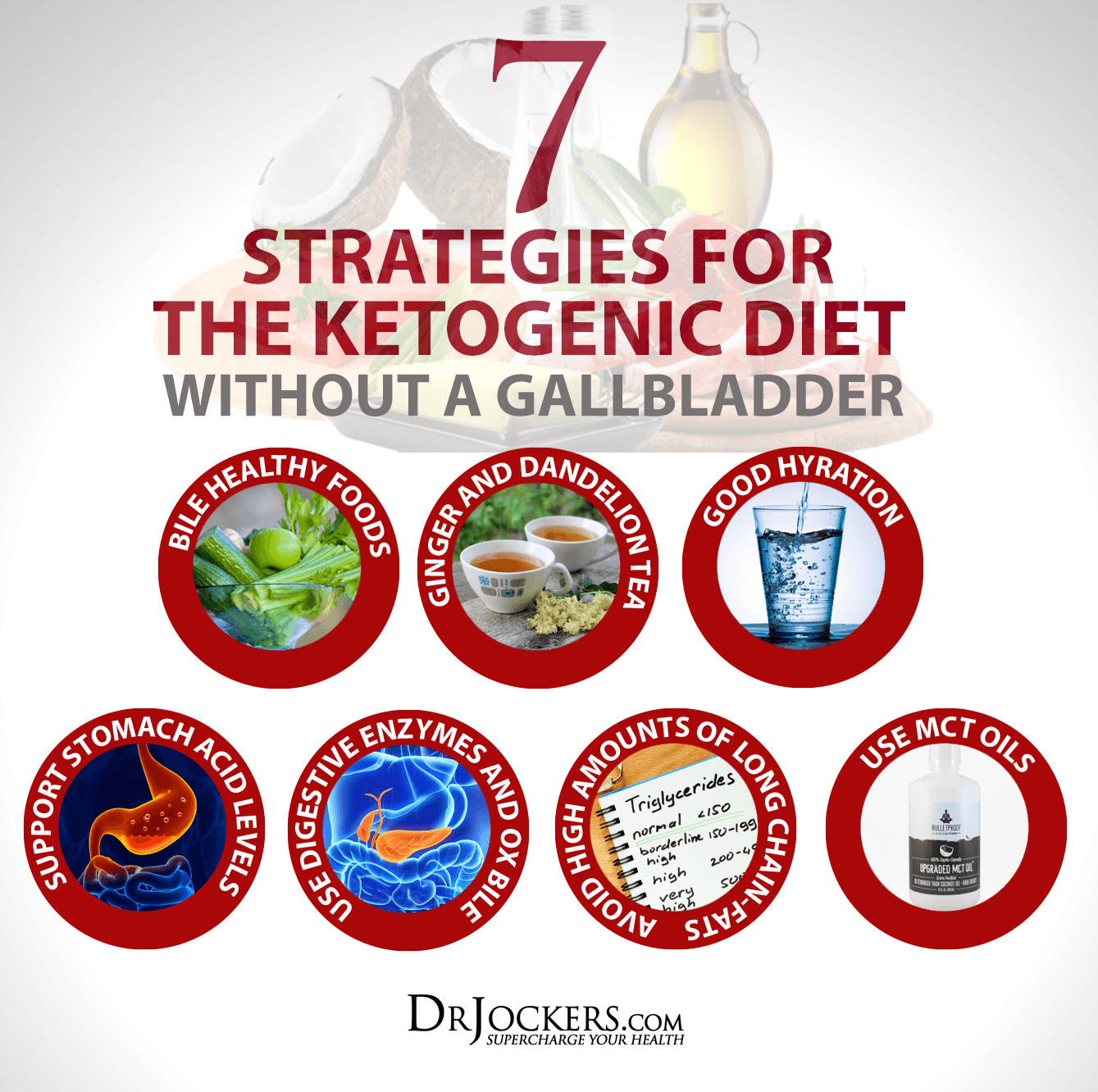
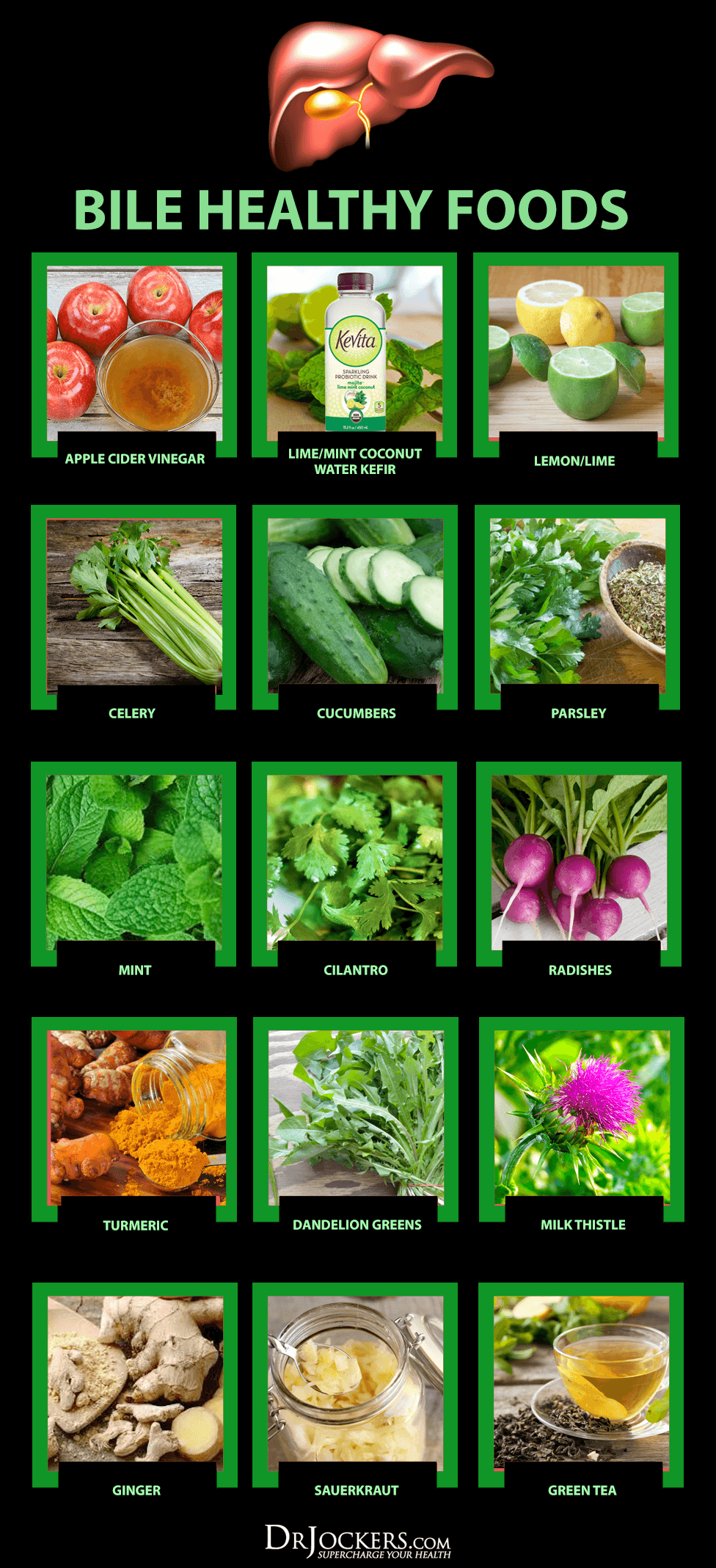


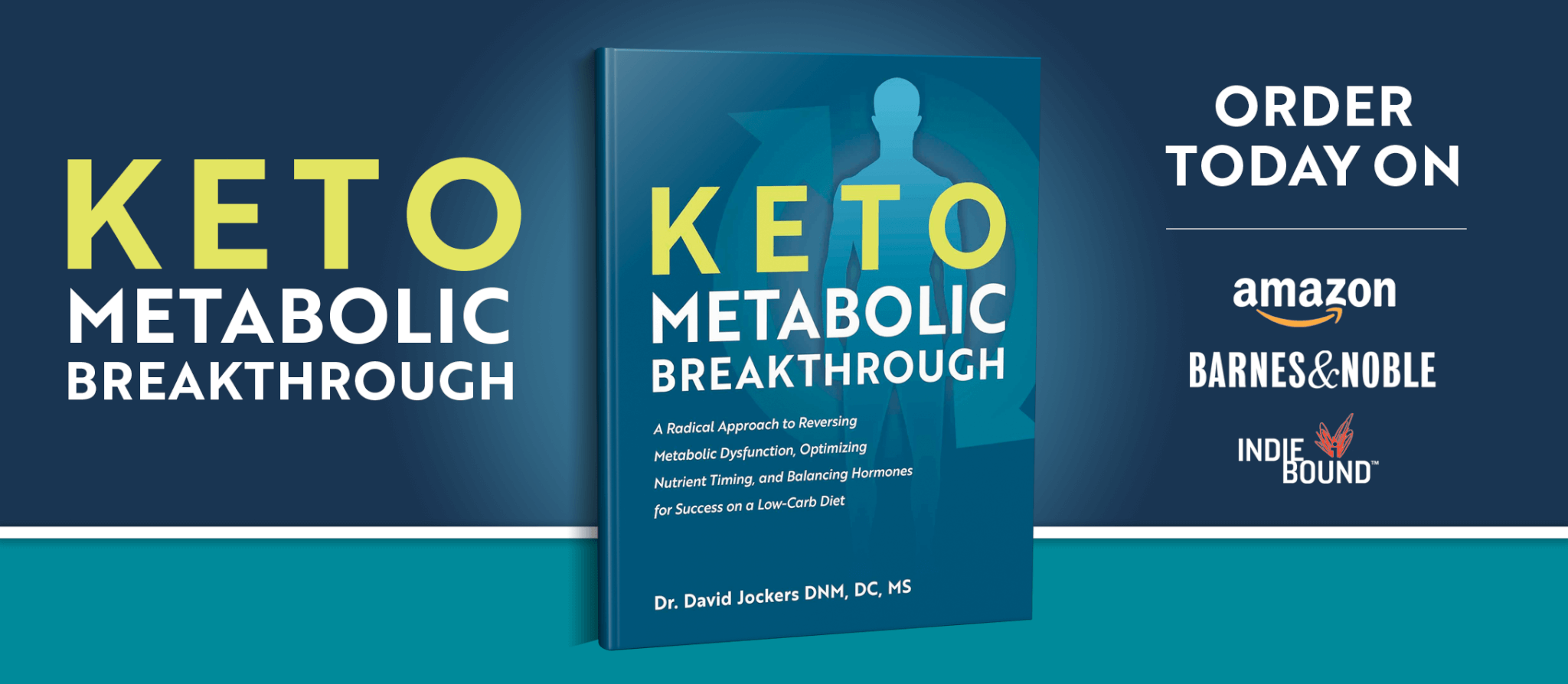


Dear Dr. Jockers. I follow the clean and unclean diet as set up in the bible. I will not put Pork in my body. Unfortuanetly nearly all digestive aids contain pork. Your suggestion of Bio-Gest is one of them. Pepsin is from Pig guts. I have been living without a gallbladder for many years, and can’t seem to get well. I can’t loose weight, and have had so much trouble with my gut. I keep asking the Lord to show me how to fix this without putting something unclean in my body. I would love it if you could help me find good clean options. Bless you
Hey Theresa,
I would recommend doing 1 Ox Bile here: https://amzn.to/2lwqDNB and 2 Digestive enzymes here with each meal. Both of these are free of pig and shellfish. https://store.drjockers.com/products/super-dzyme?variant=1076929157
I’m a 39 yr old woman living without a gall bladder since 2001. Diagnosed a diabetic in 2011. Tried keto had a hard time losing weight. Any suggestions. I would like to get a regiment on how to implement keto. I need your help!!
Hey Vickie, I’m sorry to hear about this! Without your gallbladder, you would likely need to rely on lots of MCT oils for ketone production and a high quality Enzyme and Ox Bile Supplement to properly digest fats.
Your case may require some more specific individualized work. You can email nutrition@drjockers.com if would like some personal consulting on this!
I don’t have a gallbladder and I suffer with anaphalactic attacks. I believe I have black mold in my body as well. Most of the food groups for the ketosis diet are bad for a mold free diet. I take organic probiotics. I am suffering. I can’t get better. I need help.
Wow that’s a tough situation Michell. You would also probably benefit from a personalized plan if you want to email nutrition@drjockers.com for that! It would be helpful to perform some lab work to see if you have been reacting to mold.
Michell,
Have you been tested for Alpha-Gal? This is also known as the red meat allergy, that might be why you have anaphylaxis and allergic to all things mammal.
I too don’t have a gall bladder. I am having a hard time losing any weight. I had cholesterolosis of the gall bladder resulting in malabsorption syndrome. Removal was a blessing for me but now it’s so hard to lose.
Hello Dr Jockers,
Thank you for sharing this info. I started Keto over a month ago. Lost a quick 15 pounds in the first couple weeks then nothing. I noticed I had a lot of indigestion. I decided to search no gall bladder/keto. I found info on ox bile and ordered. However now I have diarrhea after eating and taking. So then I searched again and found you. 🙂 Would you recommend starting with smaller doses and building up? Thanks
Hey Reg! Yes start with the lowest dose and see how you respond. Also make sure to eat plenty of fiber rich leafy greens, cruciferous veggies, and avocados to see if that helps.
Blessings!
Dr. Jockers,
I’ve been following a paleo/keto diet for about 2.5 months and have had great success in losing weight. Last week I started getting “phantom” gall bladder pain (right at the bottom of the rib cage in the middle) – I lost my gall bladder 32 years ago (I’m 53). I was using MCT oil in my morning protein shakes but it is causing severe stomach burning and I had to stop. What would be the cause of this? (No stomach burning when I don’t use it)
What kind of MCT were you using? You may have been using a low quality mct or using too much. You could try a pure C8 mct oil such as Brain Octane from the bulletproof brand as C8 is the easiest to process in the body.
Blessings!
I was using Viva Naturals MCT Oil. Thank you for the information, I will have to try C8.
Hi there! This is Elisabeth from Viva Naturals Customer Care Team.
I’m sorry to hear that our MCT oil caused you stomach pain! Due to its high saturation, excessive amounts of MCT oil have been shown to cause intestinal discomfort, which is why we recommend limiting your daily serving size to 1 tablespoon per day until your body adjusts. If you experience stomach upset with 1 tablespoon, we recommend reducing to 1 teaspoon per day following a complete meal or blended in a smoothie.
I just wanted to let you know that we do offer a 90-day satisfaction guarantee on all our products. Please feel free to contact us directly at customercare@vivanaturals.com for further assistance!
Elizabeth I don’t think it was your product as much as my stomach. And it wasn’t “that” kind of upset – it was a burning sensation that lasted a couple hours. And I didn’t consume anywhere near 1 Tablespoon – just a quick squirt in my shakes. We still use it to make fat bombs for my disabled grandson (TBI when he was a baby), so no refund needed.
Can all of these products be taken with high blood pressure
Yes Angela you can absolutely use MCT oil.
Hello Dr. Jockers
I went to the doctor today for pain in upper right quadrant. I am on Ketogenic diet since April and have lost 22 lbs. I have to get an ultrasound tomorrow. I have no other symptoms. Question for you, do you believe in the gallbladder/liver cleanses? I don’t want my gallbladder taken out if I don’t have to. I have never had any digestive issues before, but I do know I have a fatty liver. Thanks for any information.
Yes Diane, I think cleaning out and supporting these organs is very important! I have a few articles for you:
https://drjockers.com/4-ways-to-improve-liver-health-naturally/
https://drjockers.com/22-symptoms-of-gallbladder-disease/
https://drjockers.com/25-ways-to-improve-gallbladder-health/
Hello! I have been on a Keto diet for two weeks now. I recently began experiencing a dull ache in my upper back on the right side. I do not have a gall bladder. What could this be? Liver pain? I ate more carbs over the past two days to see if the pain would stop and the pain subsided. Then I limited my carbs again and the pain returned. Should I be concerned in regard to my liver?
Thank you
Hey Shannon it is hard to say for sure but it is possible that this pain is coming from your liver. You could try incorporating some of the strategies in this article https://drjockers.com/4-ways-to-improve-liver-health-naturally/
It is also possible that this pain is originating from the kidneys. If this is the case you will want to make sure you are drinking plenty of water and eating a lot of alkaline vegetables. There is more information on this here https://drjockers.com/12-steps-to-prevent-kidney-stones/
Hello Dr. Jockers,
Thank you for all of the great information on keto diet without a gall bladder, this explains a lot! You had mentioned eating 3-4 smaller meals and mentioned having a shake for liquid nutrition. I would like to find a protein shake to replace one meal per day that is keto friendly and will support my lack of a gall bladder. Can you recommend a product for me?
Sincerely,
Heather Collis
Great question Heather. We recommend our Bone Broth protein which dosn’t spike insulin the way whey protein does and all of our flavors have 0-1 grams of sugar per serving and 0-3 grams of total carbs per serving. https://store.drjockers.com/collections/top-sellers/products/bone-broth-protein-pure
thanks so much .was on keto and found it didnt work for me .i thinki will take sum advice and get the oxbile .i have no gallbladder
Yes you will need the Ox Bile and probably the BioGest as well!
Hi Dr. Jockers,
I’ve been on the keto diet for almost 2 months and have only lost 6 lbs and now I’m stuck right there. I started wondering if the fact that I don’t have a gallbladder might be the problem. I found you surfing the web for a solution. I stick to keto religiously and have become very discouraged as I have about 50 lbs to lose. I am constantly in ketosis from the urine ketosticks. I check a couple time a day. I have been a constant dieter since the age of 16. I eat mainly chicken and turkey, mixed salad greens avocado with ACV and olive on my salads. I was eating beef but gave it up thinking that might be my problem. I was drinking bulletproof coffee daily with the good butter and I stopped that. I added Cacao butter to replace the butter thinking that might be my problem. I feel better looks like I might be losing inches but the scale is not moving. I don’t want to go back to the standard American diet of low calories etc…But I’m at a lost right now. Thanks
Hey Aisha, urine strips for ketosis are not very good. You either want to measure blood levels or breath levels: https://drjockers.com/5-ways-to-measure-your-ketones/
If you do not have a gallbladder and you are eating lots of fats, you will probably benefit from using the strategies in this article. If you are still experiencing weight loss problems then I’d recommend you work with one of our health coaches
I’m not sure what you where trying to say in part of your reply. “If you do not have a gallbladder and you are eating its of fats”, ??
Thanks
Yes, your gallbladder is what helps you digest fats. So if you do not have one and you are eating a lot of fats in your diet, it is going to be hard to digest. Using an Ox Bile Supplement along with the rest of the strategies above will help you have more success following a ketogenic diet without a gallbladder.
Got it! Thank you! Today is day 2, I started a liquid fast. I plan to fast for 10 days; chicken bone broth, ACV and lemon water. And then I’ll slowly move back into the Keto diet. I’ll add salad and veggies then meats a few days later. What do you think? Thanks
That sounds like a plan Aisha!
Dr. Jockers,
I am just getting started with a Ketogenic diet. I am a 43 year old female, I had my gallbladder removed in 2001, I had ERCP with stent placement in 2004 after 6 weeks of hospitalization for acute pancreatitis which occurred due to a bowel obstruction (I do not drink alcohol). I also had RNY gastric bypass in 2011. I experienced some gi distress/dumping and nausea after having coffee with MCT oil and (grass fed) butter. What are your thoughts on someone like me following a ketogenic diet?
Thanks!
Kelly
You will need to make an extra effort to support your liver health to improve fat digestion. It can also be helpful to use an ox bile supplement such as Bio-Gest which we carry. Finally, using MCT oils that only contain capric and caprylic acids will be really helpful.
Dr. Jockers,
This video has been so helpful. My gallbladder was removed many years ago and I wish that I had had this info from the doc who removed it. But, I have it now, so…what protein powder would you recommend for the keto meal replacement shakes throughout the day. I am excited to get started.
Thank you
Julie
That is great Julie! I would either recommend our Bone Broth Protein or Gut Healing Protein
Im mostly doing a lot of research before i start this diet because ive had my gallbladder removed and i heard that this is great diet to do to loose weight but im concerned because ive heard that there is some side affects and i dont want to start a diet that will do the opposite of what im trying to achieve because i did that and instead of loosing weight i gained 100 pounds and i havent been able to shed it since so i guess what im asking is that it is okay to do this keto diet without a gallbladder as long as you take these supplements to help digest the fats and such correct?
Hey Cierra, Yes using the strategies in this article will be very helpful!
Do you suggest talking both the Biogest and Betaine HCI tablets
Hey Cindy, Usually just one or the other. If you notice you have issues digesting high fat meals, then BioGest is the go to.
Hello, I’m just starting the ketogenic diet. I had my thyroid removed in 2012 due to being hyperthyroid and having massive reactions to the medication which dangerously affected my liver function. (I followed an endobiogenic medicine and herbal diet for a long time which made me feel great but didn’t alter my thyroid problem unfortunately so I eventually gave in and had my thyroid removed). I had my gallbladder removed in 2017 due to gallstone attacks. Before having it removed I followed a strict diet with many supplements but the attacks, although lessened, continues, so I have in and had my gallbladder out. (Lots of fighting hard and giving in). I am now very overweight and think the keto diet will really help me in many ways.
I have just been reading your advice for the keto diet without a gallbladder and I saw the warning about having thyroid problems.
I take thyroxin daily due to having no thyroid.
Please could you tell me what I need to do to be able to be on the keto diet – considering both factors.
Thanks so much for any info and guidance.
Hey Shula! You would want to use BioGest with meals and use MCT oils pretty frequently. Also, check out this article https://drjockers.com/ketogenic-diet-hypothyroid/
Hello,
Thanks so much for getting back to me. I have purchased the BioGest and have assumed I should take 2 tablets with every meal instead of just one, is this correct?
I will start using coconut oil more than olive oil. Do I just need to use it to cook with or do I need to use it in other ways? Do I still need to include butter and other oils/avocado oil?
I’ve read really conflicting advice – that in order to be in ketosis I need to be leaving as long as possible between meals and eating, ideally, as fewer meals as possible – 1 or 2, and definitely not to eat any time if not hungry. You’ve explained that without a gallbladder I need to eat smaller regular meals. Is this not going to counteract everything?
Do I need to do the carb cycle if I have no thyroid? I’m assuming that nothing will affect my thyroid production as I have no thyroid. It’s confusing to know how relevant hypothyroid info is when you have no thyroid.
Do I need any other supplements other than BioGest?
Thank you for any help and advice,
best wishes, Shula
So sorry to add more questions here, but I am feeling really gross, bloated and last night I couldn’t sleep, had itchy skin and my stomach was doing small spasms – like I’ve never felt beofore – like flickers – sort of similar to when your eye flickers – like a nerve thing. Very strange.
I feel like my body doesn’t know what to do with all the fats, I feel like my body’s storing it. I want to stick with the diet, but are there some specific meals that could perhaps suit me more?
Thank you, I’m happy to email you if this would be better?
Best wishes,
Shula
Hey Shula, you should try doing more liquid meals like these to aid in digestion during the day:
https://drjockers.com/chocolate-pudding/
https://drjockers.com/gut-healing-protein-pudding/
Hey Shula, there are many factors to consider with this. 2 caps of BioGest may be a good idea, also a variety of fats is best. Saturated fats for cooking other fats for dressing. If you would like someone to coach you through the process, feel free to reach out to michael@drjockers.com
I developed Hashimoto disease after my first pregnancy and had my gallbladder removed right after my 2nd pregnancy. I would really love to try the Keto diet. can you explain to me why it’s not recommended for people with poor thyroid function?
Hey Anne, you can do a keto diet if you have a poor thyroid but you have to do it the right way as I explain in this article. https://drjockers.com/ketogenic-diet-hypothyroid/
Hi Doc,
Quick question. I had emergency surgery for cholecystitis about 7 years ago. I was never given any instructions on what to do afterwards. I’ve always been a carbaholic so it never bothered me. Lately, I got sick on olive oil so I realized I had to start taking ox bile and digestive enzymes. Before I go straight into keto, should I try detoxing my liver? I do seem to have symptoms of liver congestion. All those years can’t have been good for my liver. I mainly only ate processed foods, carbs, soda, some fruit/vegetables, but overall very poor diet.
Thank you sir
Ok, I want to see if I get this straight. I do not have a gallbladder. Therefore, to do Keto, I need to supplement with the following:
-Bio Gest
-MCT Oil (C8 is best)
-Enzyme
-Ox Bile
-Bone Broth Protein (optional?)
Are ALL of the above necessary? I am only on my second week. Also of note, I have been told that I have a fatty liver and am in the process of being tested for MS.
Hey Kathleen! Yes Bio-Test with larger solid meals (you may not need it for things like smoothies, test what works for you), Bio-Test also contain ox-bile so you will not need an additional supplement. Everything else you’ve got there is correct! I have had people without gallbladders do fine without this stuff as well, it just depends on how your body responds!
My gallbladder was removed 20 years ago and I have suffered with what I’ll call bile diarrhea since. Recently I have started following a low carb/Keto diet and the diarrhea has been much worse! I really want to continue Keto. Any suggestions on what I should do or try?
I started using coconut oil in my coffee eight months ago. About the same time I developed “bumps” done my spine that continued to get worse. After several trips to different doctors, the latest being my dermatologist who did two biopsies because the rash had turned into full blown blisters on back, knee and shin I still don’t know what is causing this. I stopped coconut oil mid way through this process thinking I was allergic to it and started using butter in my coffee. Still breaking out. Now I’ve tried Bullet Proof Brain Octain Oil and I am covered in red, itchy welts. I have taken steroids orally and creams but nothing clears it up. I’m thinking this is caused because I don’t have a gall bladder.Do you have any suggestions? I don’t want to stop the oils because I feel great using them but I’m going crazy with the itching. Thank you so much!
Hey Cathy, sorry to hear about this! You may need to use digestive support such as Ox Bile with high amounts of fat. We also have a ketogenic specific enzyme formula here: https://store.drjockers.com/collections/ketogenic-products/products/keto-digest
Can I take biogest along with the cholestyramine that the doctor has me on for my stomach issues because of me not having my gallbladder
My daughter has been fighting matastic bone cancer for five years. She has been hypoglycemic since childhood and is now 50. Would the Ketogenic diet be good for her? She has been on Chemo every three weeks for 4 years and is now on oral Chemo. She’s doing well, not overweight, cancer not active, spine has been compromised, but I am afraid her liver may not hold up with all the abuse. This is the best information on this subject, I have ever read. Thank you.
Hey Kathy, it may be helpful for her! Here is a good article full of information that you may find useful: https://drjockers.com/beginning-cancer-healing-journey/
Oh no! I’ve been doing keto for about a month and just discovered that my lack of gallbladder can cause problems! My stomach upset is making sense now. I was never counseled years ago when I had it removed about what to adjust in my diet. I was wondering how much ox bile to take, I have seen 125 mg and 500 mg capsules as well with directions to take 3 times per day. Not sure what I would need.
Hey Kath! Most people do really well with 1-2 capsules of Bio-Gest here: https://store.drjockers.com/products/bio-gest
Hello Dr. Jockers,
I’m a 38 year old male. I’ve done keto and have been following a diet that is right on par with the foods you have suggested for the last 3 months. I’m 6′, down to 34″ waist & maintaining a weight of about 185lbs (I was 218lbs in March and back to what I was in high school!). As of last year, I have suffered from gout attacks and do have elevated levels of uric acid. I had another attack 2 months ago after attending a wedding and eating shellfish & red wine (I had put off gout in my mind since experiencing great results with my diet).
My main concern is that I recently decided to donate a portion of my liver and am scheduled for a 2-day clinical testing in about a month and half. I learned that my liver will regenerate but I would lose my gallbladder. What should I expect to experience after removing my gallbladder? I really want to help my friend who has cirrhosis and requires a liver transplant. I’ve had so much success with my health and weight since focusing on my diet I’m wondering if I can still maintain post surgery.
Hey Shaun, yes you will likely need to supplement with an ox bile source but not necessarily. The recommendations in this article will be exactly what you need to experiment with!
So, good to know about a ketogenic diet without a gall bladder. but, guess what? what about if you also have barretts esophagus and take daily omeprazole that cuts down on stomach acid… you talk about increasing stomach acid to stimulate bile secretion. With the additional challenge of GERD, is there anything else to consider here? thank you!
You may want to try using enzymes and a bile flow support supplement to make up for low stomach acid Judy.
Enzymes: https://store.drjockers.com/products/keto-digest
Bile Flow Support: https://store.drjockers.com/products/bile-flow-suport
Just came across this information while searching on the internet for a keto diet without a gallbladder. What an infomative article. I too was never given any information on what to expect after gallbladder removal . I’m wondering if all my health problems stem from not being able to break down nutrients. If I take vitamins daily, do any of them benefit my body or do they just not get absorbed.
Hey Claudine, yes you will definately want to boost your fat metabolism to ensure you are absorbing all of your fat-soluble nutrients! Here’s a great article on this: https://drjockers.com/bile-liver-gallbladder/
Hi Dr Jockers
Prior to getting my gall bladder out I was on a keto diet. I lost weight very easily and fast. However my ketone blood levels were through the roof (around 5.4mmol/L – which is ketoacidosis yes?). This alarmed me as I was not sure if this was doing me harm. Shortly after I got pancreatitis – which I have had before – so this time I got my gall bladder out. My doctor noticed in my urine tests the high ketones and told me to go off the diet.
However I lost weight well on that diet and want to go back on it to continue to loose weight, but maybe with a higher carb count say around 35 net carbs per day? Would I still loose weight on that amount and would I be safe? I assume it was the lower carb count that caused the high ketone blood levels?
thank you! 🙂
That is a high blood ketone level but not anywhere near ketoacidosis. Keto acidosis would be blood ketones over 15 mmol/L.
High ketones in your urine is not an issue unless you are a type I diabetic, but your doctor is trained to think that it is bad. If you feel good on a keto diet, than follow the principles in this article and get back into ketosis.
Thank you very much 🙂
Hi
Do you consider Kombucha a fermented drink? And okay on a keto diet?
thank you
Yes it is a fermented drink, but for most people it has too many carbs and sugar to be keto.
Hi, I had my gall bladder removed 20yrs ago. Since then I have been diagnosed with Gerd and have gained weight that has been hard to get off. My doctor never gave me instructions on what I should do after it has been removed. No diet has worked for me. Tried keto but it seems I’m doing something wrong. Please help! What should I do and what products should I take. Thanks
I also suffer from constipation, gas, and bloat.
You may also need to work with a functional health practitioner. Here is an article on how to find a good one: https://drjockers.com/functional-nutrition-tips-to-find-a-great-health-coach/
So sorry to hear that! I would be sure to follow the instructions in this article!!
In my country i don’t found MCT oil neither bile salts ( ox bile )
can i use cocnut oil instead of MCT oil ?
Hi Dr. Jockers
I have no gall bladder and found this article very informative. I also have your book. As an added twist I also have hypothyroid and am worried about eating too many cruciferous veggies. Do you have any suggestions?
Yes – here is a helpful article on best foods for hypothyroidism: https://drjockers.com/hypothyroidism-nutrition-plan/
Hi Dr. Jockers,
I just found this article and hope that you are still responding to questions. No gallbladder and No thyroid. Have been on Keto/Intermittent Fasting for 3 months and have lost 22 pounds. Recently, I have started to feel a pain sometimes on my left side (thinking pancreas) and also where the gallbladder may have been. I looked for your Bio-gest, but the link says it is no longer active. I am only looking to try one supplement and wondered what enzyme should I take that also includes some Ox-Bile? Something that will aide in breaking down fat and increasing bile. Also, what tea would you recommend if any?